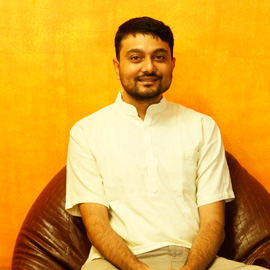Lost for words: SC verdict robs Goa's saffron parties of primary poll issue -- language

The Supreme Court's verdict barring appeals to lingual identity for votes has put a question mark on one of Goa's biggest political flashpoints ahead of the assembly election next month.
On 31 December, the apex court ruled that "religion, race, caste, community or language would not be allowed to play any role in the electoral process". It said that any candidate found violating this would have his or her candidature declared null and void.
Also Read: Meet Elvis Gomes, former bureaucrat and AAP's likely CM nominee in Goa
Over the last year, Goa's saffron parties have been split over the so-called Medium of Instruction, or MoI, issue, with the BJP regime facing pressure from its ideological fount, the RSS, to withdraw funding to English-medium schools. The RSS wanted it to fund only those schools that teach in the local Konkani and Marathi languages.
The issue reached a flashpoint last September when the RSS's Goa unit launched an unprecedented rebellion by quitting en masse, and eventually forming a political party, Goa Suraksha Manch, to take on the BJP in the upcoming election.
The GSM recently teamed up with the Maharashtrawadi Gomantak Party, the BJP's erstwhile ally, to form an alternative "Hindutva alliance" centred on the languages issue.
Now, with the Supreme Court's verdict, these parties have been left in a quandary as they cannot explicitly campaign on the issue.
A senior MGP leader told Catch that the issue has to be put on the backburner. "We can't touch the MoI issue now, or else we will get disqualified. I can't even talk about this on record."
In its 2012 election manifesto, the MGP had promised withdrawal of grants to English-medium schools, besides using only Konkani or Marathi in official communication.
"We, of course, still stand for withdrawing funding to English-medium schools. But we cannot officially say it anymore. We will campaign for it individually when we speak to voters," the MGP leader said.
Also Read: Will Goa be the first state where RSS cadres work to defeat BJP?
The GSM, for which the language issue is its raison d'etre, is not so clear about it. "The judgment is not meant for us," Subhash Velingkar, the senior RSS leader spearheading the rebellion against the BJP, told Catch. "It is targeted at politics such as what takes place in Karnataka over Kannada and Marathi languages. Ours is not a fight between languages. We are only asking for implementation of the National Languages Policy and the government's own promises. We are not doing anything anti-national based on languages," he claimed.
A senior member of the GSM, however, told Catch that the party - which was recognised only this week and is yet to get an election symbol - won't put the language issue on its manifesto. "Of course, there is still a trend within the electorate to support a party that takes a stand on the MoI issue. We will continue doing our job of requesting whichever government comes to power to implement it," the leader said.
The MoI issue has a religious dimension as well, as most English-medium schools in the state are run by the Roman Catholic Church.
In 1991, then education minister and MGP leader Shashikala Kakodkar had first withdrawn aid to English-medium schools on the pretext of promoting local languages. After public demands for such funding grew, the Congress government, in 2011, restored assistance to these schools. The BJP came to power in 2012 promising to withdraw the funding, only to change its mind later.
Velingkar had recently said that the BJP's changed position on the MoI issue was "proof" that it was "appeasing minorities".
The 40-member Goa assembly goes to polls on 4 February.
Also Read: Loot the people: the Goa model for "ease of business"?







![BJP's Kapil Mishra recreates Shankar Mahadevan’s ‘Breathless’ song to highlight Delhi pollution [WATCH] BJP's Kapil Mishra recreates Shankar Mahadevan’s ‘Breathless’ song to highlight Delhi pollution [WATCH]](https://images.catchnews.com/upload/2022/11/03/kapil-mishra_240884_300x172.png)

![Anupam Kher shares pictures of his toned body on 67th birthday [MUST SEE] Anupam Kher shares pictures of his toned body on 67th birthday [MUST SEE]](https://images.catchnews.com/upload/2022/03/07/Anupam_kher_231145_300x172.jpg)


_in_Assams_Dibrugarh_(Photo_257977_1600x1200.jpg)



